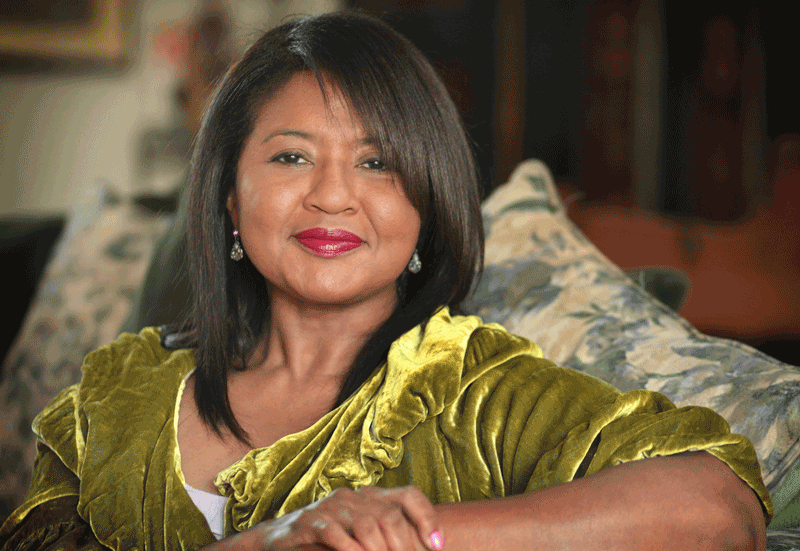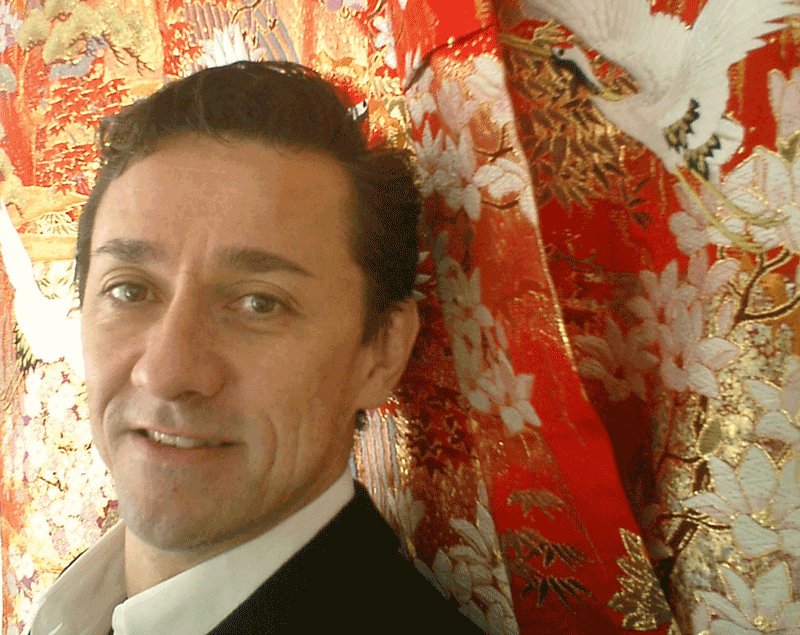Four members of the “Hafu Nation” share their experiences of living life from (at least) two perspectives.
By Kyle Mullin
Ariana Miyamoto has proven that beauty is not merely skin deep. Although some of her detractors criticized her for not being ethnically pure enough to represent Japan in this year’s Miss Universe pageant, many more supporters see her selection as an opportunity to address what role that mixed race individuals will play in the future of Japan. One work that has brought this question to movie audiences around the world is the documentary “Hafu” (the most common word used to describe Japanese people of mixed race). We reached out to one of the directors of the film, Megumi Nishikura, who put us in touch with several members of the local and international hafu community, who shared their views about Miyamoto’s selection, as well as their own experiences of multiethnicity inside and outside of Japan.
Eliza Seki: Indian/Japanese hafu. Born and raised in Yokohama. Thirty years old. Attended Japanese school from elementary to graduate school. Studied abroad at the University of California at San Diego for a year. Wrote her Master’s thesis on hafu identity at Tokyo University. Lives in Washington DC.
“When I was kid, I was often told that I should become a model because I had a good figure. Every time I heard that comment, I always thought: “I can be a model because I am hafu, but you would never let me be Miss Japan. So I am very happy that the time for a hafu being chosen as Miss Japan finally came… Recently more and more hafu are becoming models and TV personalities, and this has enabled Ariana to become Miss Japan… However, white hafu are still predominant in the media, so I guess her image as a black hafu has the possibility to widen the image and perception of biracial people in Japan.”
Rob Buscher: One quarter Japanese American living in Philadelphia. Director of the Philadelphia Asian Film Festival, which helped him forge deep ties in the wider Asian and Japanese American communities.
Amongst the Hafu social groups that I belong to, fluency in Japanese is not assumed, but I think it is generally seen as an indicator for how closely one is to the Japanese side of their heritage. Being a biracial Yonsei Nikkei (fourth generation member of the Japanese diaspora), I most certainly would not have gained Japanese proficiency had I not lived and studied in Japan. I have Sansei cousins that are fully ethnically Japanese who do not speak a word of Japanese and have never visited Japan, so I don’t think it is fair to assume language proficiency or cultural competency based on ethnicity alone.
I think it [Ariana Miyamoto’s selection as the representative for Japan in the Miss Universe competition] is a terrific step in the right direction that will push many Japanese who have no exposure to Hafu people to learn more about the complexity of biracial identity. That said, many of the comments in the online articles [on Japanese sites] include ignorant statements from readers who do not consider Miyamoto-san to be Japanese. […]With as much emphasis as the Bunkacho [Agency for Cultural Affairs] has been putting on exporting Japanese culture abroad, perhaps the domestic audience would benefit from some educational initiatives on better integrating Japan’s ethnic minorities. Until the Japanese public can move past the knee-jerk reaction that only people who appear ethnically Japanese belong in their society, there can be no real change.
Blu Koizumi Mays: Japanese/American hafu. Born in Kawasaki, Kanagawa Prefecture, to a mother from Shizuoka City and an African American father from Chicago. Twenty-two years old. Lived in Japan until the age of six, then moved to Colorado in 1999, living in Denver ever since, but splitting time between there and Japan to stay connected with relatives. Recently graduated from University of Colorado Boulder with a BA in psychology, and has plans to enroll in grad school.
“I feel happy about Ariana Miyamoto being crowned Miss Universe Japan. What I have noticed is that hafu people are always used as models or actresses or featured in variety shows in Japan, but they never are seen as Japanese citizens, no matter how much Japanese they know or [whether or not] they have spent their whole lives in Japan… Hafu people face many unique issues and societal circumstances in Japan, such as identity development. In a homogenous nation, it is a silent rule that people try to fit in and that acceptance is important, and when you are not accepted you are seen as an outsider. That’s how many hafus naturally feel. They feel that no matter what they do, acceptance from others is something that is not a given for them. Often times though, hafu people develop a better sense of themselves and find inner acceptance, instead of acceptance from others, which makes them different. Many Japanese people often look for acceptance in others, and that is where they find their identity.
“There is definitely a hierachy amongst hafu people. Many times the media wants to use hafus who are white and Japanese, because they not only have Japanese features but also Western features that are very desirable in Japan. People who are half white and Japanese can also fit into Japanese society a little bit more easily than someone who is black and Japanese.”
Bobby Dozier: Founder and principal of a cost recovery firm. No longer a resident of Japan, but lived there for 20 years. Born to a Japanese mother and European American father who is also four percent Asian. Now based in Oklahoma.
“The issue that Japanese hafu face is acceptance as Japanese. A hafu with a Japanese father may often get asked why they have a Japanese name, when those asking do not realize that the person in front of them has a Japanese parent or has Japanese ethnicity. I have a friend who was asked that all the time on sales calls.
“For those of us with a Japanese mother, we might not have faced that problem but Japanese people, for whatever reason, are not very good at recognizing (through facial clues) those of us with Japanese heritage. Sometimes it can be difficult but often it’s obvious. For children it can be much more difficult … I think this is getting better though, from what I hear through friends, but there are always going to be exceptions where children are the target of bullying and other forms of ostracism simply because they look different from the masses.”
Velina Hasu Houston: A playwright and professor at USC who holds an MFA and PhD, and has explored the U.S.-Japan relationship through drama, fiction, essays, and film, among other forms.
“If Ms. Miyamoto were part white instead of part African American, there might be less brouhaha and discourse about her being named to represent Japan in the Miss Universe pageant. For example, recently Ms. Saira Kunikida, who is Japanese and Italian, was selected by Isetan to represent and be “the perfect symbol” (in the words of Fashion Headline Japan) of its “This is Japan” motto.
“Because Japan thinks of itself as a racially homogeneous and racially pure society, anybody that does not appear to be conventionally Japanese faces myriad issues of prejudgment and, at the very worse, discrimination in Japanese society. Sometimes this is positive in that Japanese citizens may be curious about someone who looks different, especially if that person appears to have some Asian traits. […] But more often than not being hafu in Japanese society can be trying. Japanese citizens stare at hafu constantly—on trains, walking down the street, in stores, and so on. It gets tiring always feeling as though you are being watched. You also may be racially profiled. If Japanese citizens perceive you to be of a certain race or national origin, they may behave differently toward you, thinking that you may act in a way that is to their detriment. These types of encounters are frustrating for hafu because our blood is Japanese as much as it is whatever else we are.
“The crowning of Ms. Ariana Miyamoto as Miss Nagasaki, and now as the representative for Japan in the Miss Universe pageant, is one of the most progressive sociopolitical steps that Japan has ever made in its modern history. Japan may be an island geographically, but if it wants to be on the world stage—and it very much does—then it must wake up to the reality that mixed race today owns an integrity that makes it a very genuine part of many cultures, and that all behavior is subject to worldview. Position yourself beyond the nose on your own face and then, lo and behold, one has some explaining to do, and exclusionary excuses become a thing for the rubbish bin. One out of every 30 persons born in Japan today has one parent who is not Japanese. The birth rate of the Japanese populace is less than two children per family, and the aging population in Japan is the largest in the world in terms of percentages. That means that it will be international marriages and hafu that help the notion and nation of Japan to sustain.”
Main Image of Velina Hasu Houston: Photo by Ken Matsui










